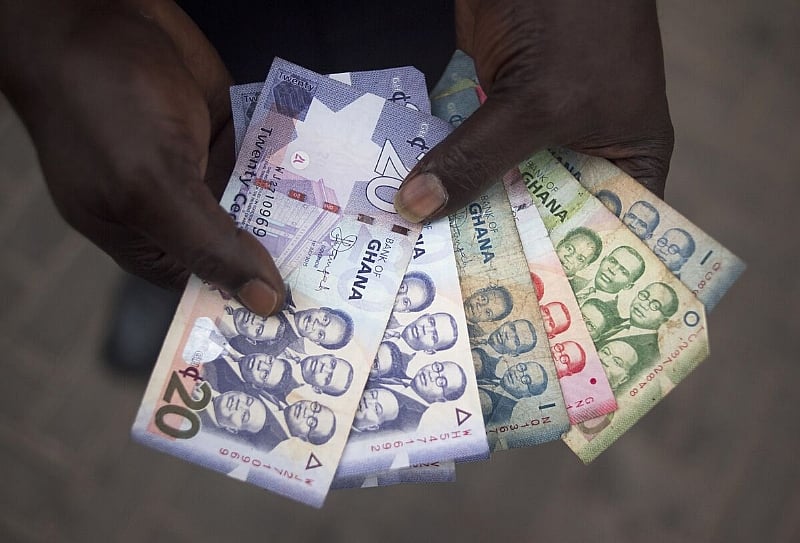The Ghanaian Cedi is experiencing a notable depreciation against the United States dollar as of October 7, 2024, reflecting a decline of 2 pesewas in both the buying and selling rates compared to the previous Saturday. The current buying rate stands at GHS15.73, while the selling rate is GHS16.23. These figures are based on data collected from Cedirates.com, a reputable source for currency and fuel updates within Ghana. The interbank rates show a similar trend, with the Cedi trading at GHS15.78 for buying and GHS15.80 for selling against the US dollar, indicating a tighter market situation and a need for diligence among traders and investors.
In addition to the fluctuations against the dollar, the Cedi’s performance against other major currencies reveals a broader trend of depreciation. The British Pound Sterling, on average, is trading at buying and selling rates of GHS20.53 and GHS21.35, respectively. Similarly, the Euro is also facing an upward trajectory in valuation, with current purchasing and selling rates of GHS17.13 and GHS17.91. In the interbank market, the Pound Sterling is listed at GHS20.71, while the Euro is priced at GHS17.31. These increases in the rates for both the Pound and the Euro highlight the Cedi’s declining strength and could have implications for imports, foreign spending, and inflation rates within the Ghanaian economy.
The currency exchange landscape is further complemented by money transfer services aimed at facilitating remittances. Platforms like LemFi and Afriex are providing rates for sending money to Ghana from the US and UK. The Cedi is traded at GHS15.75 for each dollar sent from the US through LemFi and GHS15.42 via Afriex. When it comes to the British Pound, these platforms offer buying and selling rates of GHS20.65 and GHS21.01, respectively. Such services not only aid in enhancing financial accessibility for Ghanaians abroad but also provide competitive alternatives to traditional banking exchanges, which may often carry more substantial fees.
For individuals looking to make digital payments for online subscriptions such as Netflix, Spotify, or Apple Music, the rates being offered by international payment processors like Visa and Mastercard are also relevant. Currently, both processors are exchanging the US dollar at GHS17.00 and GHS17.01 respectively. This rate plays a crucial role for Ghanaians utilizing these popular streaming services, as the local valuation impacts the overall cost of maintaining subscriptions. The slight differential between the two rates suggests competitive marketing dynamics among payment platforms, encouraging users to remain vigilant in seeking the best transaction terms.
As these currency fluctuations impact daily economic activities, they create a ripple effect that may influence consumer behaviors, especially in sectors reliant on importation. Businesses may need to adapt their pricing strategies to mitigate the effects of currency depreciation on their operational costs. The cost of imported goods is particularly sensitive to exchange rate movements, which underlines the importance for companies to remain agile in their financial planning and reporting.
Overall, the current depreciation of the Ghanaian Cedi against major currencies such as the US dollar, the British Pound, and the Euro reflects broader economic challenges and pressures. This situation necessitates a careful assessment by both individuals and businesses regarding their foreign exchange dealings, particularly in forecasting expenses related to international transactions and investments. The ongoing adjustments in local currency rates have the potential to impact the economic landscape significantly, and stakeholders must remain informed and prepared for further developments in the financial sector.


